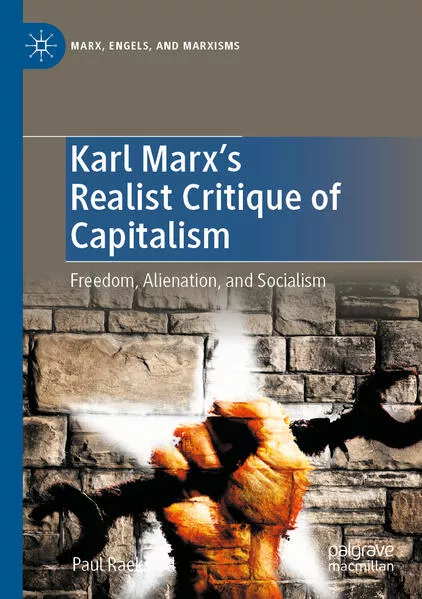
- Publikationen ca: 3
- Fragen & Antworten
Paul Raekstad
Paul Raekstad is an Assistant Professor of Political Theory at the University of Amsterdam working on radical political theory, in particular Marxism, anarchism, prefigurative politics, and direct action. They co-authored Prefigurative Politics: Building Tomorrow Today (2020).
Karl Marx's Realist Critique of Capitalism
This book offers the first realist reconstruction of Marx’s critique of capitalism. Reading Marx through a realist lens enables us to make sense of the connections between (1) Marx’s positive concept of freedom, rooted in a theory of human development, (2) his understanding of alienation as diagnosing capitalist unfreedom, and (3) his conceptions of democracy and socialism, respectively, as the cures for this unfreedom.
Karl Marx's Realist Critique of Capitalism
This book offers the first realist reconstruction of Marx’s critique of capitalism. Reading Marx through a realist lens enables us to make sense of the connections between (1) Marx’s positive concept of freedom, rooted in a theory of human development, (2) his understanding of alienation as diagnosing capitalist unfreedom, and (3) his conceptions of democracy and socialism, respectively, as the cures for this unfreedom.
Karl Marx's Realist Critique of Capitalism
This book offers the first realist reconstruction of Marx’s critique of capitalism. Reading Marx through a realist lens enables us to make sense of the connections between (1) Marx’s positive concept of freedom, rooted in a theory of human development, (2) his understanding of alienation as diagnosing capitalist unfreedom, and (3) his conceptions of democracy and socialism, respectively, as the cures for this unfreedom.


